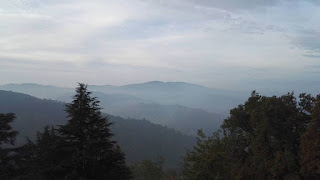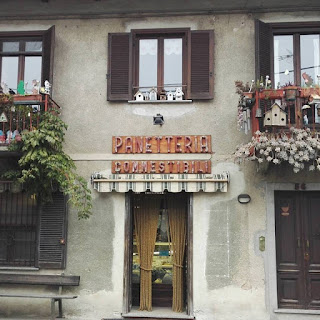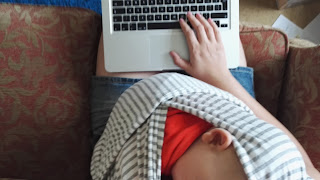A walking stick for my mountains
Last November we spent a beautiful fortnight in Italy,
gorging ourselves on gelato, pizza and mountain views. We spent a week with a
mix of friends, some new, some older and one of the highlights for me was the
circular sofa at the heart of that gorgeous house, where every evening all
eight of us sat round and listened to God for each other and shared struggles,
hopes, tears and prayers. We all came away with a beautiful picture drawn of
the things God had been showing us, and mine has held my hand as I've walked
through the following months and everything they've brought. There was
encouragement, but also challenge, warning of struggle ahead.
And the past 9 or so months have been hard, for all
sorts of reasons and in all sorts of ways. I've needed the remainder that when
it feels like I'm heavy laden with a mountain to climb, that God is ahead of
me, cheering me on, calling me forward, equipping me with a mighty great
walking stick to help me keep on going.
I've always thought of myself as an activist, I hear
God on the move, encounter him in the middle of the chaos, thrive on the
dynamic and the crazy. I've railed against the contemplative, struggled to see
the need for it, found God in other places and been satisfied by that. But just
recently God has been whispering into my soul the need for silence, for
solitude, to encounter him in new scenery. After almost 4 years of being
constantly needed and touched and grabbed at by little hands; of my presence,
my body being the solution night and day; after a year of grieve and turmoil,
stress and upheaval (as well as many beautiful, wonderful moments and
opportunities too, I hasten to add!), my heart is hungry for space and peace. I
resonate with David when he wrote,
'You, God, are my God,
earnestly
I seek you;
I thirst for you,
my whole
being longs for you,
in a dry and parched land
where
there is no water.' Psalm 63:1
So, I've carved out a space in my week, 3 glorious
child-free hours, not to work, definitely not to do housework, but just for me
to use how I need to that day. Silence, exercise, a long undisturbed shower,
listening to God, painting my nails, journaling, writing, thinking, breathing,
reading. 3 hours flies by. I'm trying to not cram it full with an agenda, but
to let that space breathe deeply.
We’ve been trying to work out what we can
pull back on that God isn't asking us to do right now. Not doing just for the
sake of it and because that's what we do, and yet, not passing the buck and
landing thing things on there people around us. We’re relearning Sabbath year
lessons about fruitfulness coming from intimacy, and the importance of abiding
in the vine. This game is not about working harder or even smarter. This is a
marathon, not a sprint, and when the signs are showing that we’re approaching
burnout, that’s time to take stock and turn around and dig deep into rest. I
want to last the longhaul.
Rest is so important for that, in all its varied and
glorious forms.
Retreat days, taking furlough, conferences,
anniversary getaways and date nights of leaning into the uncomfortable and the
awkward, remembering how to have a conversation about something other than kids
and ministry. We face seasons of going hard and pulling back. December is crazy
in the run up to Christmas, January we pull back and recover.
We split the day up into three sections, morning,
afternoon and evening, and aim to work 2/3 of them. At the moment it looks more
like 1/3, and I’m ok with that. You can't pour out of a dry well, you can’t
give what you haven’t got. Spiritual, emotional and relational health are so important,
and I’m convinced it’s our role as spiritual leaders to model fullness of life,
with space to receive from God and each other.
Henri Nouwen talks about the importance of solitude,
and the risks we face when we cram it all in and don’t take time to recharge
our spirits. I’m currently reading Mere Spirituality by Wil Hernandez, which is
a great summary of the key themes of Nouwen’s work, and the section of solitude
is covered in underlining in my copy:
‘Without silence
the Spirit will die in us and the creative energy of our life will float away
and leave us alone, cold, and tire. Without silence we will lose our centre and
become the victim of the many who constantly demand our attention.’ (Intimacy,
p 138)
I don’t want that to be true, but increasingly I am
discovering this to be a reality, at least for me in this season of life. And
as I look back, the times in my life when I resented the contemplative were
already times when I naturally had big chunks of time alone. What I was
craving, what my spirit needed were the gathering, the community, the corporate
worship that are also vital for our spiritual wellbeing.
I’ve been trying to work out the difference between
self-comfort and self-care, doing the things that feel good, help us relax,
switch off, zone out, but don’t necessarily restore and nurture wellbeing,
versus the things that take more energy, more discipline, but are the fruit and
veg equivalent to the junk food of a Netflix binge. Both self-comfort and
self-care are necessary, but I do find it easy to get stuck in self-comfort
without actually moving forward to the things that are life giving and
replenishing.
I’ve managed to do more reading in the past few months
that I have in a long time, and there’s helpful transformation that comes in
renewing your mind, having different voices speak into your context. I loved
‘Unexpected Gifts’ by Christopher Heuertz, a beautiful little easy read on the
challenges of living in community, and how God can turn those around to become
our most precious gifts. The chapter on grief sounds a clarion call to what he
calls ‘contemplative activism’, the necessary counter-balance to living whole
heartedly in a broken world that douses us regularly in its pain.
‘Cultivating the
contemplative basis for our active life hasn’t been easy. It’s meant stopping
our activity and evaluating where its motivation originates. It’s meant
creating rhythms for rest, Sabbath and sabbatical. It’s meant placing value on
a communal praxis of reflection that allows space for members to examine and
process the pace, successes, failures and contributions we make in service, as
well as the grief we experience. It’s meant learning to care for ourselves and
nurture rules of life that allow us to thrive in mission… Discovering the
contemplative basis for activism has given us the gift of a muscle memory that
produces peace… Grief has no easy solutions, but contemplative spirituality
helps us receive the hidden gifts in the broken places of our hearts. Accepting
grief doesn’t mean that we concede what’s wrong in the world, but it does
challenge us to live more intentionally into the possibility of hope.’ (p176)
My times of silence and solitude have forced my
busy-addicted self to confront the uncomfortable places within me, to recognise
the places I go to hide from the difficult, painful things life throws at me,
forces me to see how uncomfortable I often am in my own company and thoughts.
It’s easier to help and fix other people than to give space to your own
swirling chaos.
Heuertz writes about taking a sabbatical, needing to example radical rest to his contemplative activist colleagues. He and his wife pilgrimaged the Camino de Santiago de Compostela, northern Spain. He describes the process of stripping off the weight they didn't know they didn't need, carrying only the things they absolutely needed, then gaining sturdy walking sticks to assist their way. I'm discovering rest, solitude and silence are my walking stick for this mountain I'm climbing. They remind me of my weakness, that my power comes from somewhere else, I need to lean on them if I'm to keep going.
The other night I was overcome with anxiety and
sleeplessness, both things I’m not really familiar with, both signs that I
needed to pay attention to my inner life. God gave me these words that have
been bringing me peace ever since. I pray they bring you peace wherever you are:
'Let the peace of Christ rule in your
hearts, since as members of one body you were called to peace.' Colossians 3:15
Breathe in Jesus, breathe out
distraction
Breathe in peace that passes understanding,
breathe out anxiety and trouble
Breathe in faith that God is good and
powerful and loving, breathe out fear that you're not enough and God's not in
control
Breathe in strength for today, bright
hope for tomorrow, breathe out the worries and disappointments
Breathe in truth that all God's promises
are yes and Amen in Christ Jesus, breathe out the lies of the enemy that haunt
you
Breathe in grace that frees you, breathe
out guilt of all you're not and all you should be
Breathe in Jesus, breathe out Jesus to
everyone around you.
Go in peace.






Comments
Post a Comment